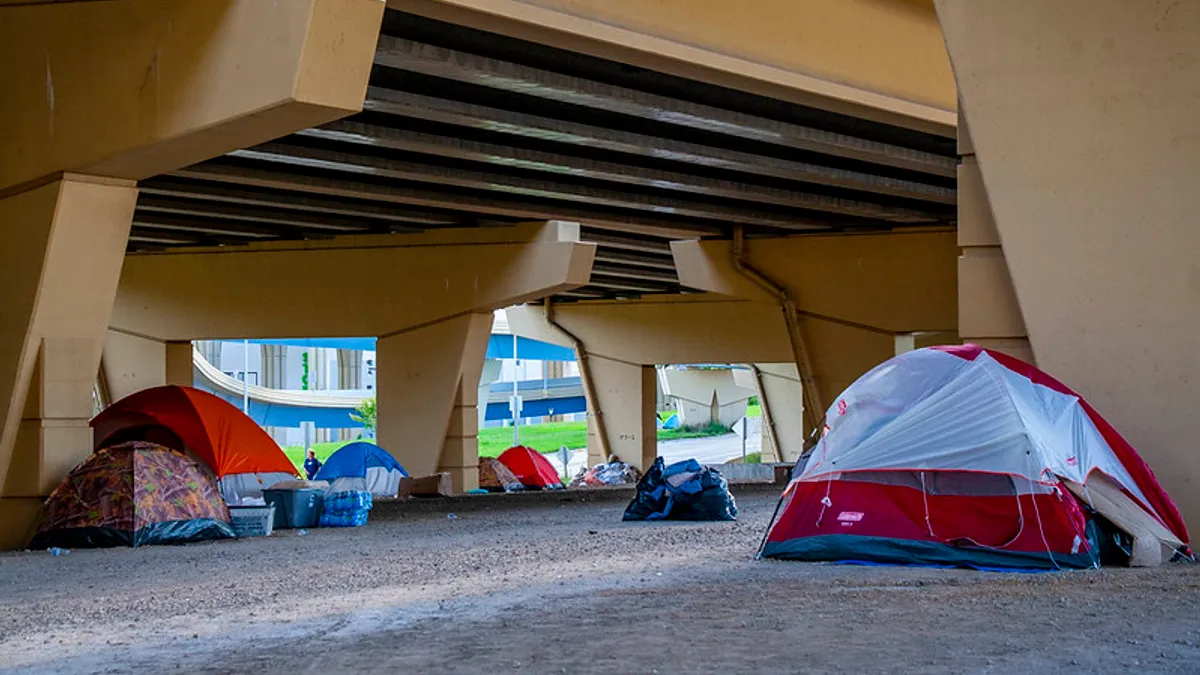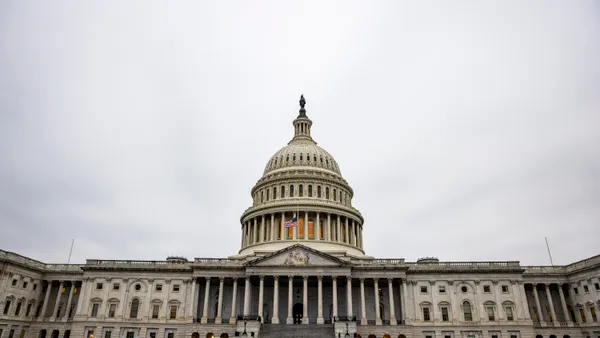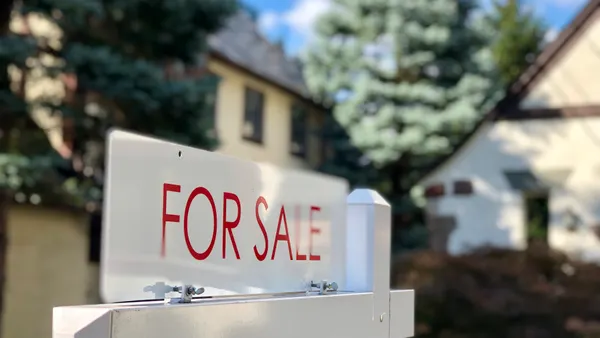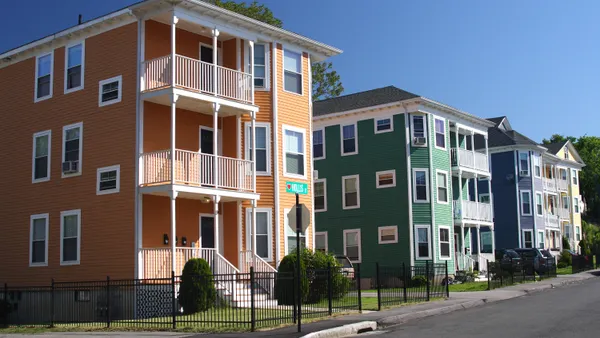Dive Brief:
- The Biden administration announced Wednesday what it described as “a first-of-its-kind” $365 million package of funding to address unsheltered homelessness throughout the U.S.
- The package includes $322 million in grants for nonprofit service providers and state and local governments to conduct outreach to those who are homeless and provide permanent housing and support services. It also provides $43 million to fund about 4,000 new housing choice vouchers for people experiencing or at risk of homelessness, as well as for veterans and people fleeing violence.
- Homelessness advocates described the money as a great first step. Housing and Urban Development Secretary Marcia Fudge said in a statement the funds will give communities “the resources to scale up coordinated efforts to humanely and effectively move people from encampments into homes by linking homeless outreach with health care, treatment and housing.”
Dive Insight:
The cost of buying and renting a home has skyrocketed in recent years in cities throughout the U.S., prompting a growing number of individuals to go unhoused and seek shelter in tent encampments.
The Biden administration last month addressed the affordability crisis by releasing a separate plan meant to increase the supply of housing in the U.S. through a series of executive actions and proposed legislative actions. The rising cost of housing has largely been attributed to a lack of housing supply, which has not kept up with population growth. The plan gives cities and towns with reformed zoning and land-use policies higher scores for certain federal grants — to encourage changes to restrictive local laws that prevent development — and expands federal financing options for construction and preserving factory-built homes and small-scale developments, among other measures.
The administration’s latest funding package will distribute the $322 million through Continuum of Care Program grants — which typically go to nonprofit service providers and local and state governments — to provide homelessness outreach and services, housing and other supports that are part of a “comprehensive community approach to solve unsheltered homelessness,” the HUD announcement stated. The grants will fund projects for three years and come with the possibility of renewal. Over $54 million is being distributed to rural communities.
The proposal also will allot $43 million to fund about 4,000 new housing choice vouchers — federal rental assistance that helps low-income families pay for housing in the private market — that public housing authorities distribute. Priority will be given to housing authorities that partner in “comprehensive community approaches to solve homelessness,” HUD stated.
There are insufficient vouchers to meet demand, with families or individuals waiting years before receiving one.
Ann Oliva, CEO of the nonprofit National Alliance to End Homelessness, called the money a “great use” of “a lot of money” that HUD already has and a “funding opportunity [that] will provide a real critical infusion of resources that are urgently needed across the country.”
But homelessness advocates say more is needed to address the issue, namely greater and sustained investments over time to “end homelessness as we know it,” Oliva said.
The federal funding is a “step in the right direction but nowhere near enough to fully address unsheltered homelessness across the country,” said Jacquelyn Simone, policy director for the Coalition for the Homeless, a New York City-focused advocacy organization, in an emailed statement.
Simone called for housing investments the Biden administration had previously pressed for in the Build Back Better legislation that stalled in the U.S. Senate late last year. The bill contained more than $170 billion to address affordable housing, including billions for expanded rental assistance, the preservation of public housing, and the construction, preservation and operation of affordable housing units.
Simone said Biden still needs to follow through on his campaign promise to make housing vouchers “an entitlement for all who need them, which would be transformative in reducing housing instability and homelessness nationwide.”
Oliva agreed that the ultimate goal should be universal housing vouchers, in which all eligible households receive a voucher, as well as an affordable housing supply that meets the current level of need.












